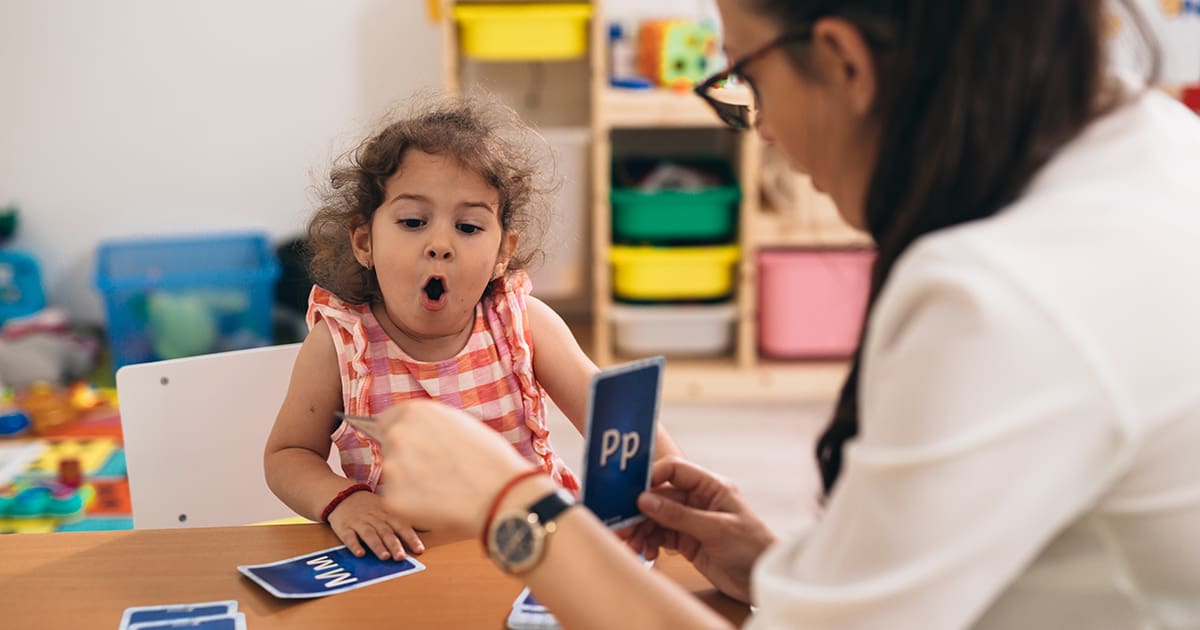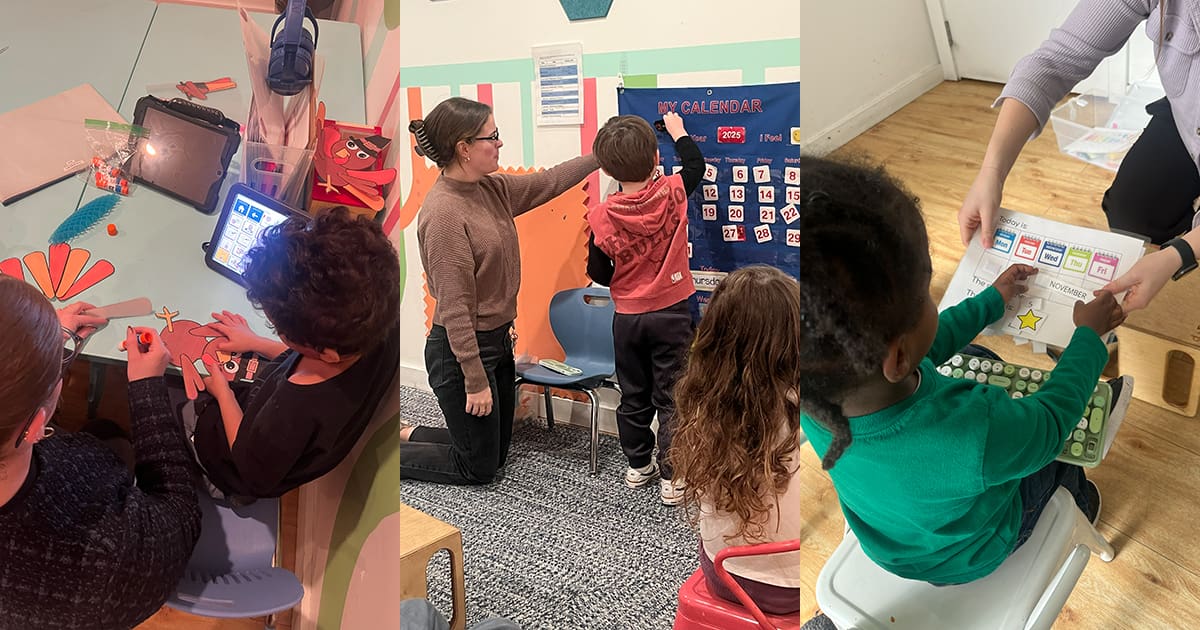Share this Post

Early childhood is a critical time for language and communication development. For children with speech and language delays, a therapeutic preschool program can provide the structured support they need to build communication skills, express their thoughts, and connect with others.
At CST Academy, speech therapy is seamlessly integrated into our preschool program to ensure that children receive individualized, research-based interventions in a nurturing, play-based environment. By combining early education with specialized speech therapy techniques, we help children develop essential language, social, and cognitive skills that set the foundation for lifelong success.
What is Speech Therapy in a Therapeutic Preschool?
Speech therapy focuses on helping children improve their ability to understand and use language, communicate effectively, and develop clear speech sounds. In a therapeutic preschool setting, speech therapy is embedded into daily activities, providing children with frequent opportunities to practice and strengthen their communication skills in real-world situations.
Speech therapy in this setting goes beyond traditional one-on-one sessions. It is woven into classroom routines, group play, and structured learning experiences, ensuring that children receive consistent and meaningful language support throughout their day.
How Speech Therapy is Integrated into a Therapeutic Preschool Program
At CST Academy, speech therapy is carefully designed to meet the unique needs of each child. Our licensed speech-language pathologists (SLPs) work closely with teachers, therapists, and families to provide comprehensive, individualized support. Here’s how speech therapy is incorporated into our therapeutic preschool program:
1. Individualized Speech Therapy Sessions
Each child receives personalized speech therapy sessions tailored to their developmental level and communication goals. These sessions may focus on:
- Building vocabulary and sentence structure
- Improving articulation and pronunciation
- Strengthening social communication skills
- Enhancing comprehension and listening abilities
By addressing these areas in one-on-one or small-group settings, children receive focused, specialized attention that supports their unique growth.
2. Language-Enriched Classroom Activities
Speech therapy extends into classroom activities, where children are encouraged to use language in natural and engaging ways. Some of the language-rich experiences in our preschool program include:
- Storytime and Interactive Reading – Encouraging listening comprehension and expressive language skills.
- Music and Singing – Helping children practice rhythm, repetition, and pronunciation.
- Arts and Crafts – Encouraging descriptive language, following directions, and creative expression.
These activities create a fun and supportive environment where children feel confident practicing new speech and language skills.
3. Play-Based Speech Therapy Techniques
Play is one of the most effective ways for young children to learn. Our speech therapists use play-based strategies to help children develop communication skills in a natural and enjoyable way. Through interactive games, pretend play, and hands-on activities, children practice:
- Turn-taking and conversational skills
- Asking and answering questions
- Expressing emotions and thoughts
- Following multi-step directions
By incorporating speech therapy into play, children learn while having fun, making language development a positive and engaging experience.
4. Social Communication and Peer Interaction
Many children with speech delays struggle with social communication—the ability to engage in conversations, interpret social cues, and interact with peers. In a therapeutic preschool setting, children have daily opportunities to practice social skills in a structured yet natural environment.
Speech therapists work closely with teachers to:
- Facilitate peer interactions through guided play
- Teach children how to take turns in conversations
- Encourage joint attention and cooperative play
- Support children in expressing their needs and feelings
Developing social communication skills helps children build meaningful relationships and gain confidence in social settings.
5. Parent and Caregiver Involvement
At CST Academy, we believe that parents and caregivers play a vital role in their child’s communication development. Our speech therapists provide ongoing support, coaching, and resources to help families reinforce speech and language skills at home.
Through regular communication, workshops, and home-based activities, we empower families to:
- Use speech therapy techniques during everyday routines
- Encourage language development through play and reading
- Support their child’s progress outside of the classroom
By creating a strong home-school connection, we ensure that children receive consistent language support in all areas of their lives.
Why Speech Therapy in a Therapeutic Preschool is So Effective
A therapeutic preschool setting offers unique advantages for children who need speech and language support. The combination of structured therapy, immersive language experiences, and social interaction provides a well-rounded approach to communication development.
Here’s why integrating speech therapy into a preschool program is so beneficial:
- Early Intervention: Research shows that early speech therapy leads to better long-term language and academic outcomes.
- Natural Learning Environment: Children practice communication skills in real-life situations, making learning more meaningful.
- Increased Social Opportunities: Daily interactions with peers help strengthen social communication skills.
- Consistent Reinforcement: Language skills are practiced throughout the day, not just in isolated sessions.
- Confidence Building: A nurturing environment helps children develop self-expression and self-esteem.
By providing speech therapy within a therapeutic preschool, CST Academy ensures that children receive the comprehensive language support they need to thrive.
Is a Therapeutic Preschool with Speech Therapy Right for Your Child?
If your child is experiencing speech and language delays, difficulty with social communication, or struggles with articulation, a therapeutic preschool program with integrated speech therapy may be the ideal setting for their development.
At CST Academy, we are dedicated to helping each child reach their fullest potential through compassionate, individualized, and research-backed therapy. Our speech-language pathologists, educators, and therapists work together to create a learning environment where children feel supported, engaged, and empowered.
If you’re interested in learning more about how speech therapy in a therapeutic preschool can benefit your child, contact CST Academy today. We would love to discuss how our specialized programs can support your child’s speech and language growth while fostering their overall development.
Discover Our Pediatric Therapy & Autism Care
ABA Therapy
Support for children with autism.
Autism Evaluation
Expert assessments to identify child needs.
Pediatric Therapy Services
Speech, Occupational, Feeding, and Physical Therapy.
Therapeutic Preschool
A classroom environment designed for early learners with unique needs.

Find the Best Care for Your Child




